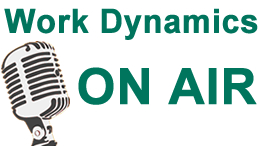News
Is it time you considered a NEW approach to performance management?
Organisations commit substantial resources to performance management systems as they recognise the importance of driving employee productivity 1. However, research indicates that performance management systems in general are imperfect in that they do not always effectively drive performance, may yield negative consequences, and that practitioners are confused as to what aspects of performance management systems drives productivity 1;10;11.
I can vouch for this perception from my experience having coached hundreds of managers and executives from many different companies and industries. One thing the majority have in common is a shared perception that performance management systems are a "waste of time", and serve to demotivate even themselves rather than motivate them to perform. On the other side of the coin I have also frequently heard managers describe how they stay up late at night to complete last minute ratings for multiple direct reports, and hating the feeling of having to hold these discussions the following day.
"In my experience the EPS process disciplines management and staff to have a structured discussion about the individual's value contribution, performance, career aspirations and personal growth. Although some of these topics also comes up in informal day-to-day discussions, the EPS process ensures that all bases are covered on a regular bases." Kobus van Tonder, Business Area Manager, Enerweb (Pty) Ltd.
What purpose are performance management systems supposed to serve?
Performance management systems have traditionally been defined as processes designed by management and imposed on employees mainly in an attempt to link performance to reward 1;2;3. This is achieved through measuring individual performance against set goals or deliverables that are, when applying best practice, aligned to team and organisational goals. In this practice, key performance areas are measured in terms of key performance indicators, and a person's performance rating is then used for incentive bonus, promotion and / or salary increase decisions. This traditional approach is captured in the definition of performance management systems put forward by Weiss and Hartle (1997): "A process for establishing a shared understanding about what is to be achieved, and how it is to be achieved, and an approach to managing people that increases the probability of achieving success" (cited in Buchner, 2007, p 61).
Why are they performance management systems not effective in some contexts?
Well quite obviously, the nature of organisations, teams and workers have drastically changed over the recent past and continue to do so. This means that performance management systems have also begun to evolve, resulting in performance management currently being seen as an area of strategic human resource management that "is in an early state of evolution" (Christensen, 2006, p134). In a review of literature on performance management, Buchner1 found that organisations are increasingly adapting performance management systems to be more strategic by recognising the potential value of employees contribute towards success. In particular, self-directed performance management has begun to replace the ineffective top-down imposed systems for various reasons:
"I find the EPS system more effective than the traditional appraisal systems in that, it's a regular exercise which is great for a continuous all-round development of employees. As a manager I personally wished for a system that not only helps track employee performance but also affords me a platform that facilitates a 360 degree feedback and engage with the people I lead and not just a one way system aimed at informing remunerations, one that identifies both strengths and improvement areas to best derive positive output. And the current EPS is that desired system." Precious Sefalfala, Business Intelligence Manager, Home Grown.
Firstly, workplace trends such as working off site, decentralisation and flatter organisation structures, have greatly reduced the feasibility of traditional models of performance management systems as supervisors are less likely to be in a position to directly observe and evaluate performance of subordinates. This increases the risk of evaluations being even more subjective and based on less information than in the past.
Secondly, even in situations where supervisors work closely with their direct reports, the work demands on supervisors frequently mean they do not have enough time to monitor the performance of all the people who report to them. The more supervisors are distanced or removed from directly observing the behaviour and outputs of their direct reports, the more likely the supervisory evaluation of performance will be experienced as unfair by their direct report 1;7;9.
Now to add a third and important dimension to this discussion, most workers in corporates are Knowledge Workers and their performance it relies on cognitive processes to yield effective judgement, discernment and self-management. For most organisations competing in the rapidly changing global economy survival, let alone success, is dependent on how they optimise their knowledge worker productivity as this determines how effectively and quickly the entire organisation is able to adapt to rapidly changing conditions, most often through innovative responses 6;5;8;12.
The importance of knowledge worker performance was aptly captured by Drucker when he stated "increasingly, the ability of organisations to survive will come to depend on their 'comparative advantage' in making the knowledge worker more productive" (1999, p.94). Similarly, Thomas Davenport commented "Knowledge workers are going to be the primary force determining which economies are successful and which aren't," he says. "They are the key source of growth in most organisations. New products and services, new approaches to marketing, new business models-all these come from knowledge workers. So if you want your economy to grow, your knowledge workers had better be doing a good job"4.
Researchers and business management writers are increasingly recognising the need to revolutionise performance management systems to make them more relevant for knowledge workers 6;5;8;12. This presents a new challenge with regards to designing performance management systems that not only drive knowledge worker productivity, but also serve to continue to build the organisation's ability to adapt at the same time7.
"I like our Employee Performance System because it motivates and encourages me to work harder to always get great feedback from my boss" Nomawethu Gwabini, Business Administrator, Home Grown.
The good news is that Work Dynamics has an advanced Employee Performance System designed to facilitate knowledge worker performance. Feel free to contact us to discuss how this may work in your context.
References:
- Buchner, T.W. (2007). Performance Management Theory: A Look from the Performer's Perspective with Implications for HRD. Human Resource Development International, 10(1), 59 - 73.
- Christensen, R. (2006). Roadmap to strategic HR: Turning a great idea into a business reality. New York: Amacom.
- Coens, T. & Jenkins, M. (2000). Abolishing performance appraisals. San Francisco: Berrett-Koehler
- Davenport, T.H., Thomas, R.J., & Cantrell, S. (2002). The Mysterious Art and Science of Knowledge-Worker Performance. MIT Sloan Management Review, 44(1), 23-30.
- Drucker, P.F. (1999a). Knowledge-Worker Productivity: The biggest challenge. California Management Review, 41(2), 79-94.
- Eisenhardt, K.M., & Martin, J.A. (2000). Dynamic capabilities: what are they? Strategic Management Journal, 21(10-11), 1105-1121.
- Law, D.R. (2007). Appraising Performance Appraisals: A Critical Look at an External Control Management Technique. International Journal of Reality Therapy, 2, 18-26.
- Regner, P. (2008). Strategy-as-practice and dynamic capabilities: Steps towards a dynamic view of strategy. Human Relations, 61(4), 565-588
- Schraeder, M.J., Becton, B. & Portis, R. (2007). A Critical Examination of Performance Appraisals. The Journal of Quality and Participation, Spring: 20-26
- Tatum, B.C. & Nebeker, D.M. (2002). A strategic approach to measuring organisational performance. In R.L. Lowman (Ed.), Handbook of organizational consulting psychology. (pp. 692 - 729). San Francisco: Jossey-Bass.
- Wells, S. J. (2009). Prescription for a turnaround. HR Magazine, (June), 88-94.
- Zollo, M. & Winter, S.G. (2002). Deliberate Learning and the Evolution of Dynamic Capabilities. Organization Science, 13(3), 339-351.





























